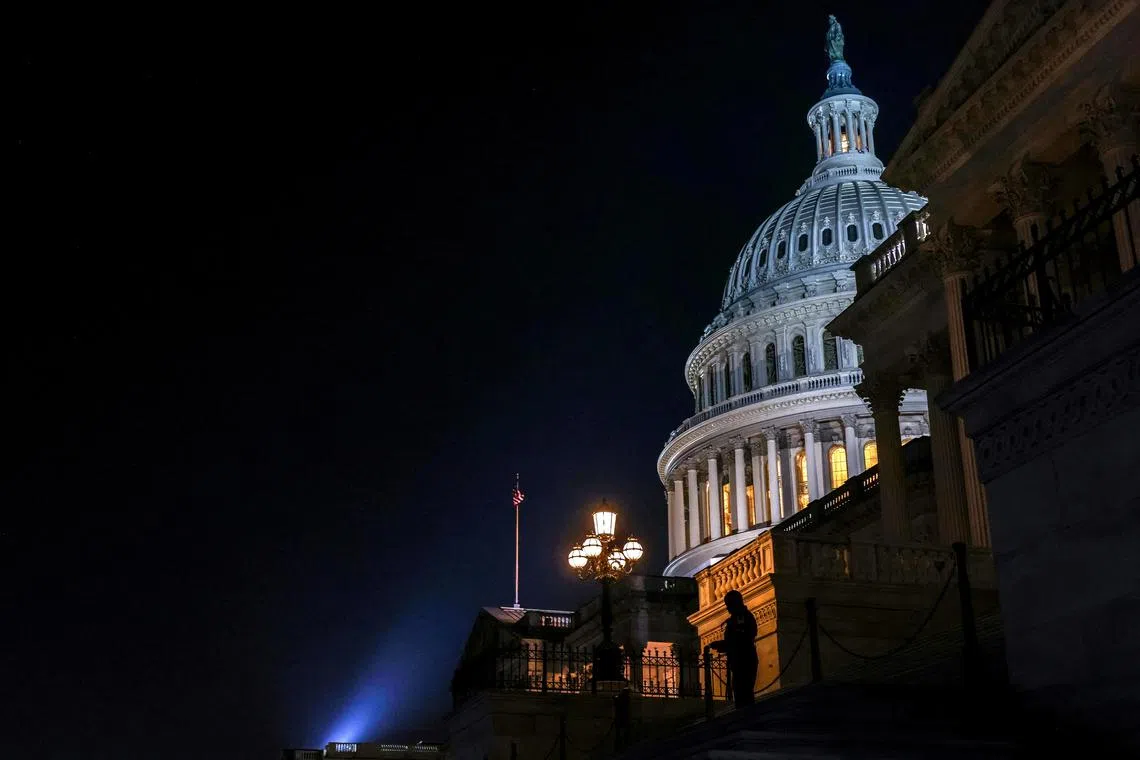Debt-limit deal clears US Congress, ending threat of US default
Sign up now: Get ST's newsletters delivered to your inbox

The legislation would impose restraints on government spending up to and including the 2024 election and suspend the legal debt limit until January 2025.
PHOTO: REUTERS
Follow topic:
WASHINGTON – The Senate passed legislation to suspend the United States debt ceiling and impose restraints on government spending up to and including the 2024 election, ending a drama that threatened to spark a global financial crisis.
The measure now goes to President Joe Biden, who forged the deal with House Speaker Kevin McCarthy and plans to sign it just days ahead of next Monday’s deadline
The 63-36 vote on the Bill was carried by moderates in both parties, many of whom aired their misgivings about parts of the deal but were convinced that their concerns were not worth risking the havoc a default would unleash.
“If we do this, we will not default,” Senate Majority Leader Chuck Schumer said just before the vote. “That is very, very important.”
Investors have largely judged the risk of a US default as resolved and are shifting attention to other uncertainties, such as Federal Reserve policy.
Benchmark Treasuries dipped in Asia trading on Friday, while equities in the region followed US benchmarks higher amid continued strength in technology shares.
The S&P 500 rose on Thursday, while Treasury yields were down.
A hard-fought compromise reached after weeks of private talks and public finger-pointing, the legislation is a rarity in a highly polarised Washington where deal-making has become a lost art form.
Getting it through the Senate on Thursday night took hours of negotiations between the two parties, with independent Senator Kyrsten Sinema shuttling in designer sneakers between Republicans lunching on the second floor of the Capitol and Democrats on and off the Senate floor.
Ultimately, they settled on allowing uncharacteristically speedy votes on 11 amendments – all of which failed – and a pair of statements from Mr Schumer aimed at soothing concerns about defence spending levels and other potential cuts.
Mr Schumer made it clear that the Senate could bypass the spending caps in the Bill for Ukraine, defence and domestic priorities using emergency funding, though the Republican-controlled House would have to concur.
Senate passage ends the worst stand-off over US debt in a dozen years. But it comes at some political cost for Mr Biden and Mr McCarthy, who have taken fire from lawmakers on their respective party’s flanks who insist too much was given away in the negotiations.
The ultra-conservative House Freedom Caucus intensified its criticism of Mr McCarthy after more Democrats than Republicans voted for the Bill in the House.
Caucus members will meet next week to discuss their next steps, which could include an effort to oust Mr McCarthy.
For Mr Biden, the vote risks alienating well-known progressives ahead of a re-election campaign where he will rely on them to rev up enthusiasm and stump for him among critical constituencies.
But the President is not facing a serious primary challenge from the left, and the deal averts an economic upheaval heading into his re-election bid. It also strengthens his reputation for pragmatism and working across party lines.
The legislation would impose restraints on government spending up to and including the 2024 election and suspend the legal debt limit until January 2025.
The House had approved the agreement on a 314-117 bipartisan vote late on Wednesday night.
Bloomberg

